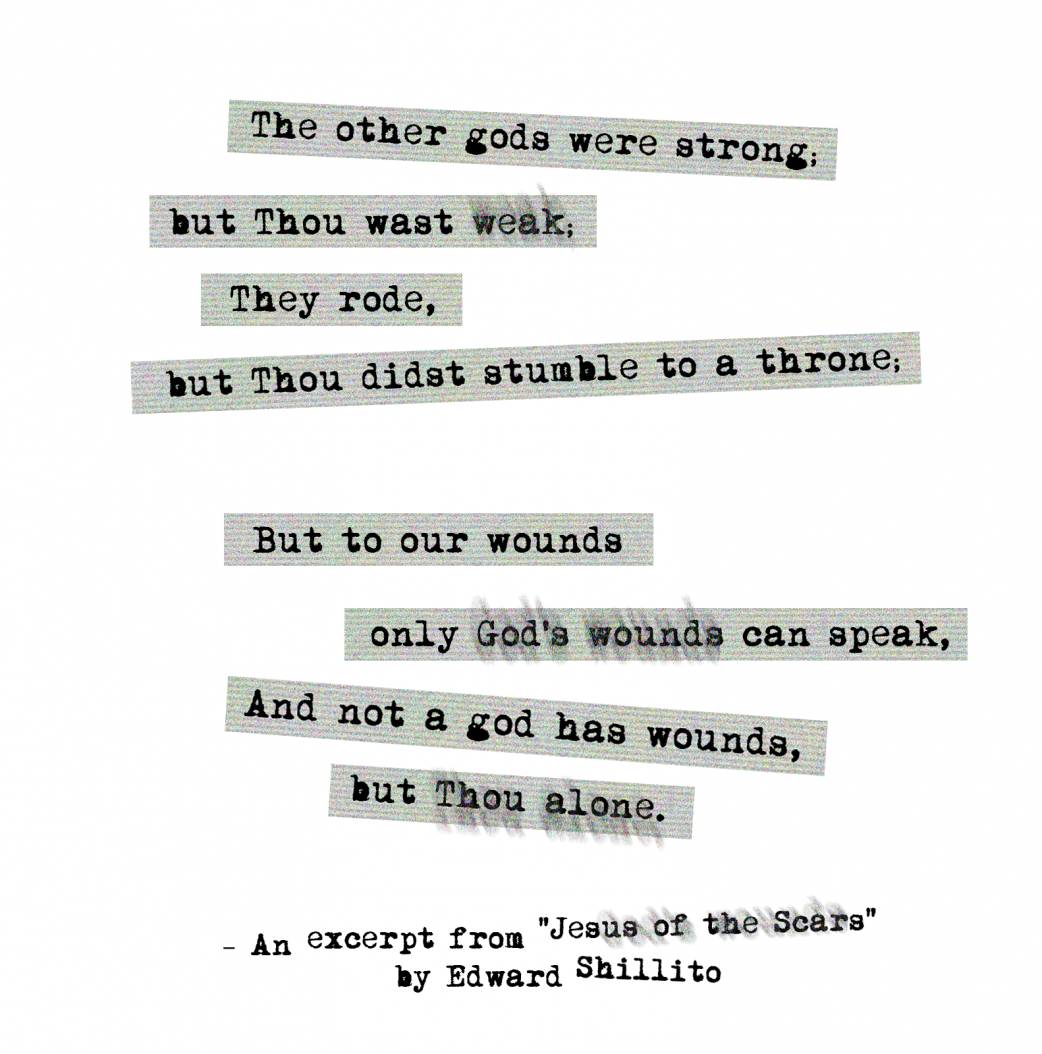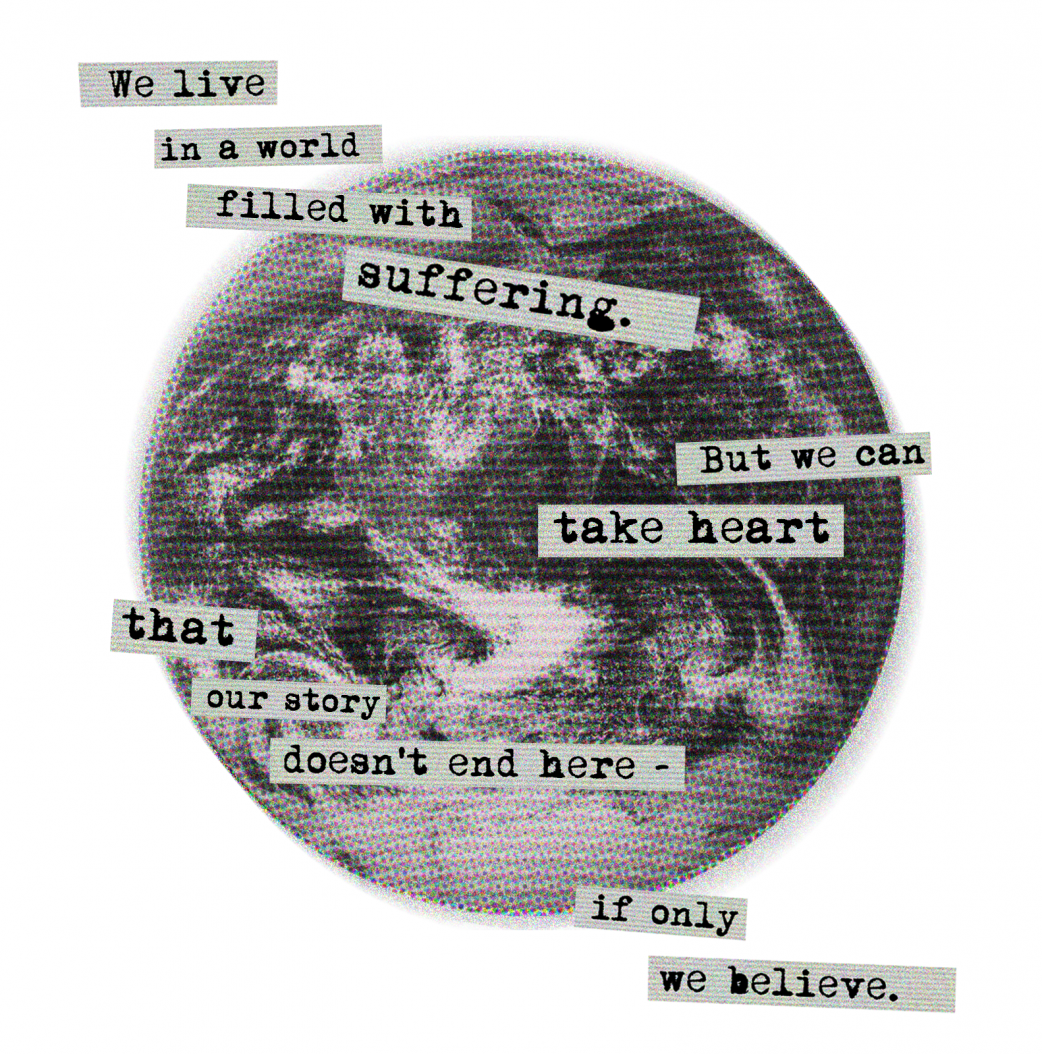I couldn’t sleep the night when news of what was happening in Afghanistan broke.
How could I, knowing that someone on the other side of the world had nowhere to turn, no safe shelter to rest in, no place to call home?
I struggled with the unfairness of the situation. A part of me felt ashamed because I had done nothing deserving to be where I was. I was simply the lucky one.
“God, why are some people given the shorter end of the stick, the bigger burden to bear?” I asked.
The answer came the next day as I read Romans 9, when Paul was speaking about the sovereignty of God.
What then shall we say? Is God unjust? Not at all!
For he says to Moses, “I will have mercy on whom I have mercy, and I will have compassion on whom I have compassion.”
It does not, therefore, depend on human desire or effort, but on God’s mercy. (Romans 9:14-16)
It is a hard answer to swallow. Why can’t we all receive equal treatment?
A few of my friends who had been reading the same devotional said that they, too, had their fair share of hurling fists at God in unfair situations.
They weren’t the only ones. Even in the Bible, there were people who struggled to understand (Job 3:1-26, Jonah 4:9-11).
But time and time again, these individuals reached the conclusion that they must be humbler still.
Who are we to question God when His thoughts and ways are infinitely bigger than ours (Isaiah 55:8-9)?
Who are we to demand equal treatment when we are already in debt of His grace and mercy?
As one friend puts it: “I used to read Romans 9 almost with a sense of injustice. But our ‘fairness’ is flawed. Now I derive comfort from God’s sovereignty.”
This can only happen if we believe that God is a good God (1 Chronicles 16:34).
And in the hands of a loving Potter, we can trust that He is fashioning us for a bigger purpose – even if we do not comprehend (Romans 9:17-21).
Of course, it’s easier said than done. Theoretically, we may understand. Somatically, we might not.
NOT A GOD HAS WOUNDS BUT THOU ALONE
But every time I am confronted with this tension, I think of this poem by Edward Shillito.

If we have been through unfair situations in our lives, so did Jesus who, in spite of his deity, came to earth to serve us and die for our sins (Philippians 2:6-8).
If we have struggled to accept our portion, so did Jesus who prayed in tears and blood for the cup of suffering to be passed from him at the Garden of Gethsemane (Matthew 26:39)
And if we have been through pain, so did Jesus, who was betrayed by his closest followers, scorned by outsiders, and crucified on the Cross for even those who hated him (Luke 23:26-49).
This is not a God who is detached and far away from the suffering of human life; He is not above us in our affliction. He is with us in it.
And perhaps this is God’s way of answering the pain in our hearts: that He understands and we are not alone.
It may not be the answer we are looking for, but surely it is one that speaks to our wounds and brings comfort to our hearts.

ASHES TO BEAUTY
Furthermore, pain and suffering aren’t the ending.
More than a God who knew pain, Jesus was a God who faced death and overcame it.
The resurrection shows us that death isn’t the end. It gives us the confidence to believe the promise of the afterlife that Jesus has made.
And God offers us the same victory.
From Joseph’s story to the resurrection of Christ, we see over and over again how God can turn what was meant for evil into something good.
And this is still happening right now. It can be so easy to dismiss God’s miracles in our day-to-day life. But if we pay attention, we can see traces of His restorative hands.
Life transformations to restoration of broken families to miracles despite medical reports… There are scores of stories of how God makes all things good in His time even if we do not see it now.
And that’s the beauty of the Gospel. God doesn’t just sit with us in our pain – He redeems it.
Beauty instead of ashes. Joy instead of mourning. Praise instead of despair.
I don’t know how, but I believe God can turn things around simply because He has done it before.
We live in a world filled with suffering. But we can take heart that our story doesn’t end here – if only we believe.
SIGN OF THE TIMES
The events of Afghanistan aren’t the only headlines that have shaken the world in recent times.
Earlier this year, the world grappled with the Israel-Palestine conflict and Myanmar military coup – all with COVID-19 as a backdrop.
And lest we forget, remember the protests in Hong Kong, George Floyd riots and Easter bombings in Sri Lanka from a few years back?
Don’t get me started on natural calamities.
You may not be a believer, but it honestly doesn’t take much to recognise the rise in global unrest.
Call it a message from the universe if you will, but perhaps God is speaking to you through the pains of this world.
We know that the whole creation has been groaning as in the pains of childbirth right up to the present time.
Not only so, but we ourselves, who have the firstfruits of the Spirit, groan inwardly as we wait eagerly for our adoption to sonship, the redemption of our bodies. (Romans 8:22-23)
There is suffering in this world, but we can take heart, for He has overcome the world (John 16:33).
And what if all this suffering is for a greater purpose; for the ultimate restoration between God and man?
C.S. Lewis once said that pain is God’s megaphone to rouse a deaf world.
Are you listening?
Featured image, “Help! Taliban is coming. Taliban is coming.” A young Afghan lady pleads to be let through the gates of the Kabul airport, sourced from https://twitter.com/FrudBezhan/status/1428032250239668226
FOR MORE ON AFGHANISTAN, READ:
- Have you struggled with the sovereignty of God? Why?
- Do you believe that God is good? What does the Bible say about God’s goodness?
- What does the resurrection of Christ mean to you? How can that give you hope?









